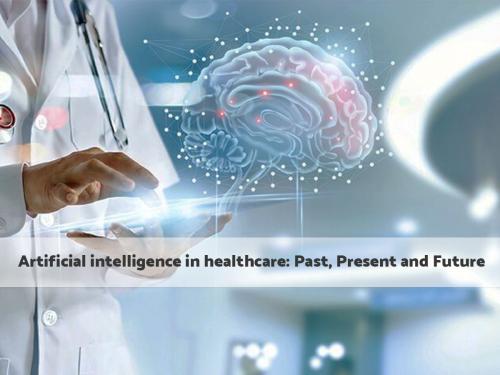Artificial intelligence in healthcare: Past, Present, and Future

Artificial Intelligence (AI) has been making tremendous progress in transforming industries across different sectors globally, and healthcare is no exception. Increasing cost and patient outcomes are two recurring challenges faced by the healthcare industry. And AI has been helping in managing claims, improving clinical workflows and preventing different hospital-acquired infections. Some other areas where data and information collected by AI engines are helping the healthcare sector are predicting ICU transfers and hospital readmissions, medical testing, clinical research and drug development, and sepsis prevention.
So, how does AI help?
There are three main areas where AI efforts are being invested in the healthcare sector.
- Engagement – This involves improvising on how patients interact with healthcare providers and systems.
- Digitization – AI and other digital tools are expected to make operations more seamless and cost-effective.
- Diagnostics – By using products and services that use AI algorithms diagnosis and patient care can be improved.
AI devices work in two ways. The first involves machine learning (ML) techniques that analyse structured data like imaging, genetic and electrophysiological data. These ML procedures can cluster patients’ traits or symptoms and predict the probability of disease outcomes. The second category uses natural language processing (NLP) to extract information from unstructured data like medical journals and clinical notes to enhance and enrich structured medical data.
- AI in diagnosis
Currently, AI is being considered for three major streams of medicine – Cardiology, Oncology, and Neurology. While IBM Watson for Oncology is assisting the diagnosis of cancer, a different AI system is being used to diagnose heart diseases through cardiac imaging. Since all three of these are life-threatening diseases, it is only reasonable that there is a lot of focus on these to help early diagnosis. Apart from these three, AI is also being used for Ophthalmology to detect and diagnose congenital cataract disease.
- AI in overall wellbeing
One of AI's biggest potential is to provide preventive care so that people don't need a doctor, or at least not very often. The use of AI and the Internet of Medical Things (IoMT) in consumer health applications is already helping people in this.
- AI in the end of life care
By enabling robots to have ‘conversations’ with old people by combining AI with advancements in humanoid design, there is an effort to increase social interaction and keep the minds of these senior citizens sharp, making them more independent.
- AI in recruitment
AI is now being extensively used in healthcare recruitment, taking a lot of human interference out. Perzue for instance, will now employ AI algorithms and tools to help recruiters search for the right candidate by matching their requirements to an online database of talent.
The Way Ahead
Going ahead, it is more likely that AI systems will be used in more advanced diagnosis and treatments and will be able to attain the ability to carry out more tasks in the healthcare sector without human intervention.
AI is definitely getting increasingly sophisticated with every passing day, much more efficiently, faster and at a lower cost. The potential for AI in healthcare is vast. Just like in our day-to-day lives, AI will soon become an integral part of our healthcare ecosystem.
Post Your Ad Here
Comments